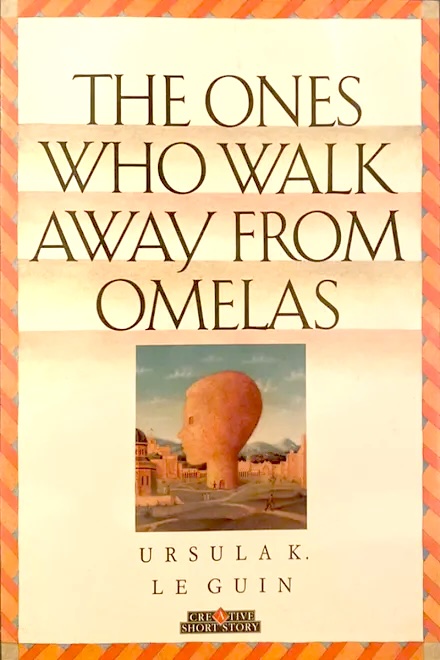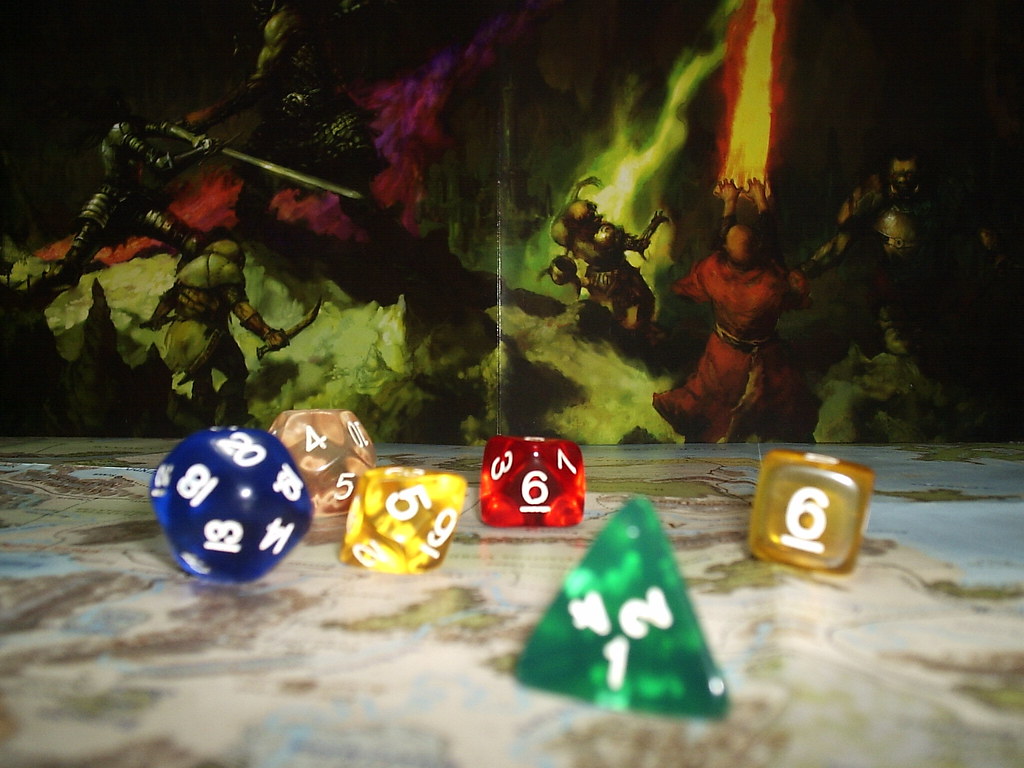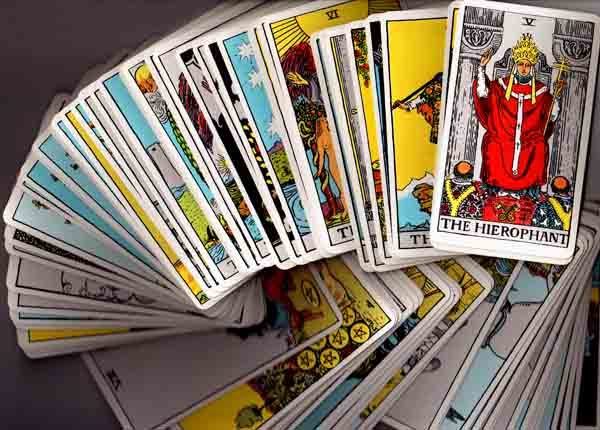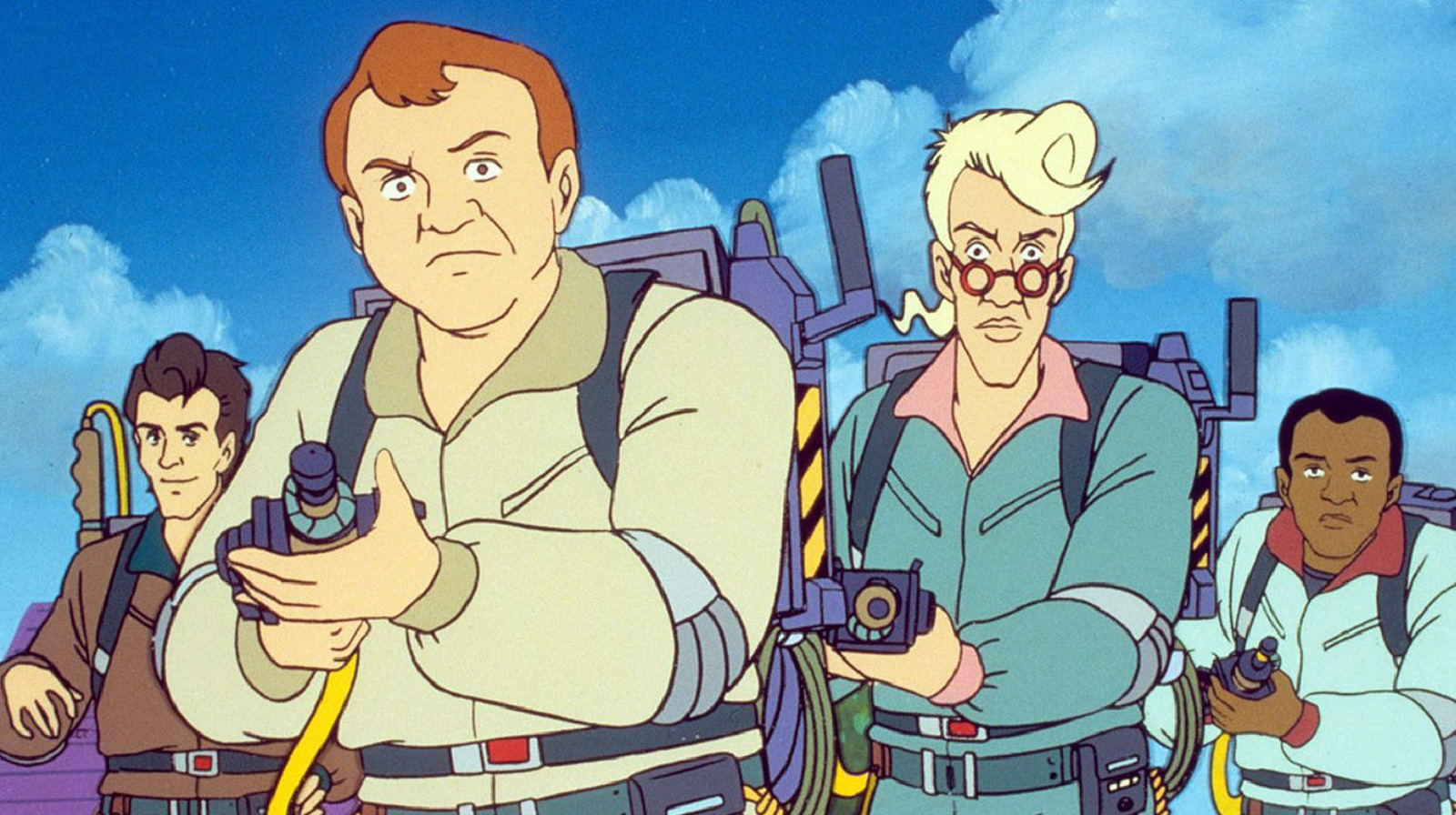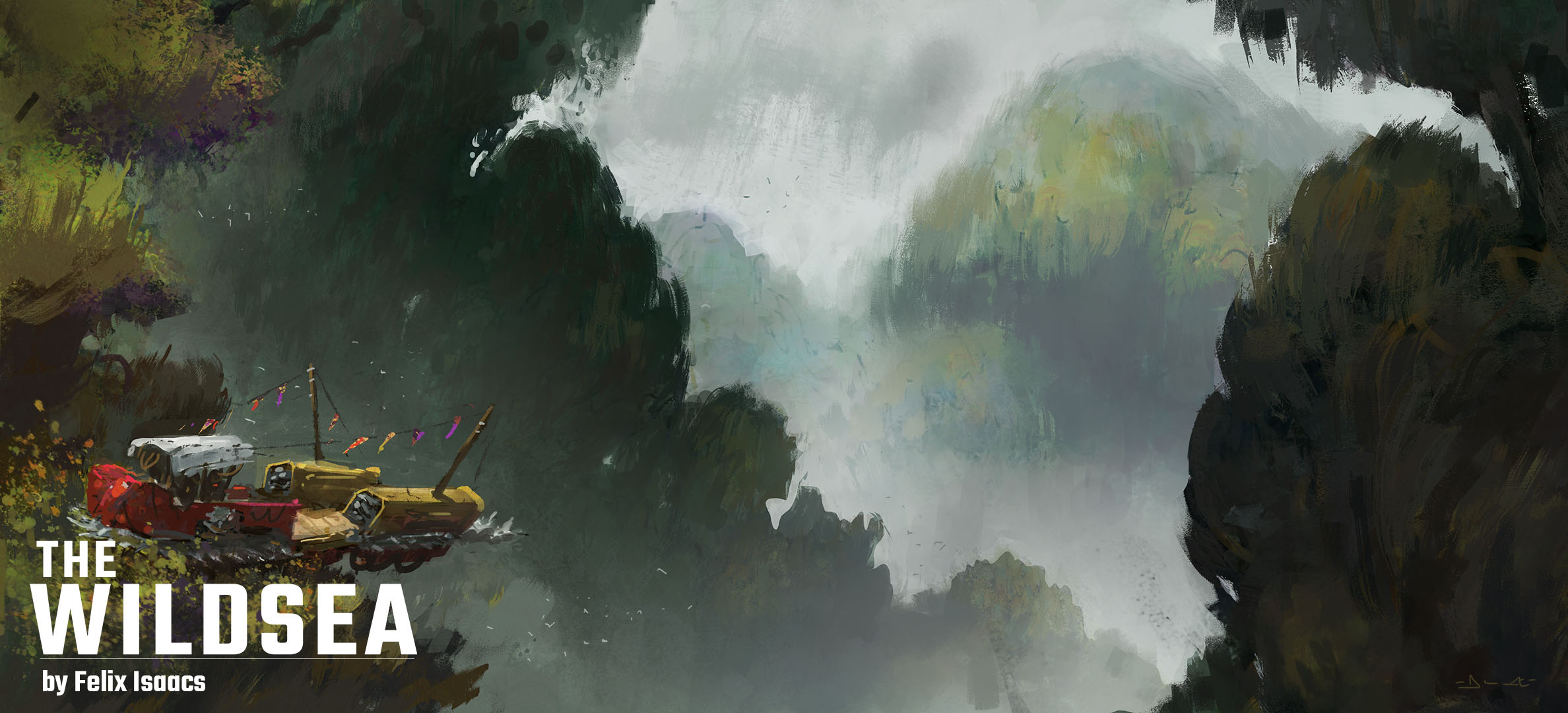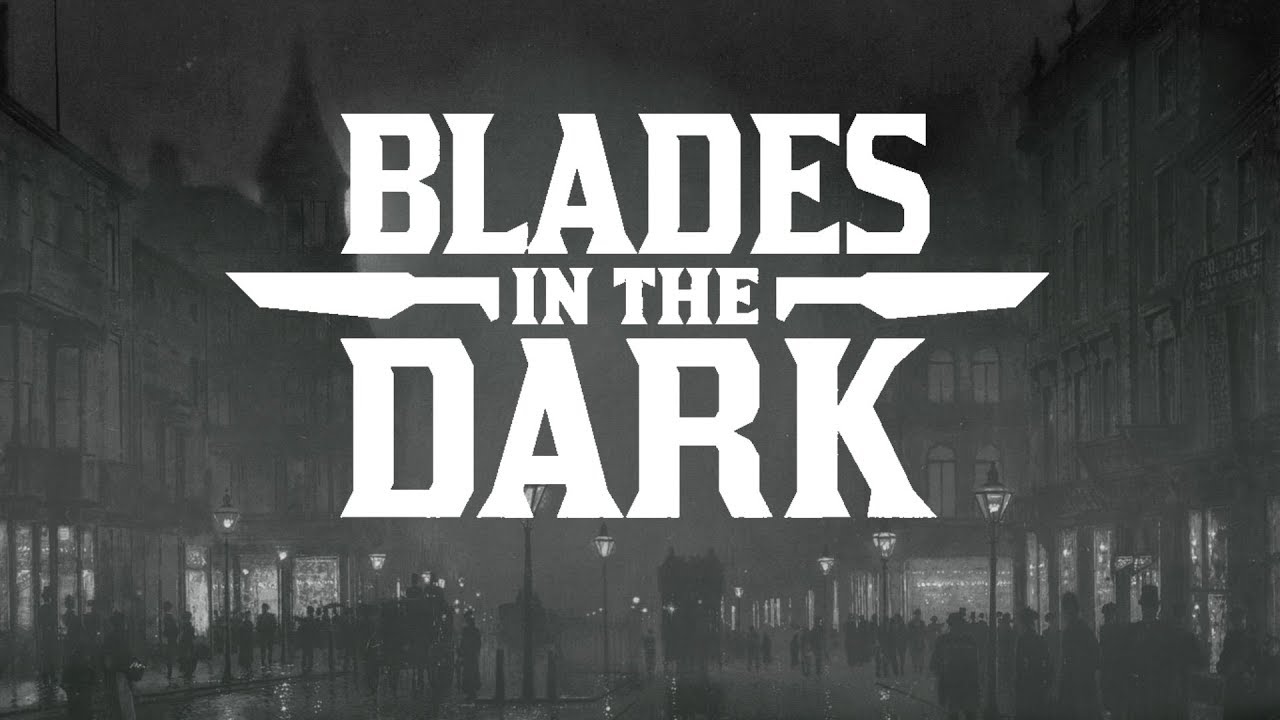I’m in the very early stages of developing an RPG around a core concept that leans on divination as a storytelling mechanic. As part of this I’m thinking about using a Tarot deck to resolve basic actions.
This is a tricky area that a number of games have tried to tackle over the years. Often the Tarot is suggested, but the problem is often that you need someone who actually understands the tarot to adjudicate results. Someone who’s not familiar with the meanings of the 78 cards in a Tarot Deck won’t be able to GM such a game, and asking a GM to train up on something that deep is a bit much.
I initially wrote some thoughts on this down in the RPG.NET forums… where it got basically no traction, so I’m reproducing my posts (from 15 SODDING YEARS AGO) here, on a site I own and control. I’ll likely revisit these basic ideas as I sharpen the concept.
Prior art
Of course, I’m hardly the first person to think of using cards for an RPG. Everway, Dragonlance 5th Age, Deadlands, Dragonstorm, Pathfinder (and I’m sure quite a few others) have all toyed with the concept or accepted it whole. Indeed, even the use of Tarot cards is non-unique. White Wolf created an entire Ryder-Waite variant deck for Mage: The Ascension, and included rules for using the cards as character generation tools, adventure hooks, or random encounter elements.
None of the systems I’ve looked at have given me quite the result I’m looking for. They all have quirks that make them not-quite-right. 5th Age, for example, seems interesting but insists on tying too many game mechanics to the cards. Your hand size is your level! Your cards are your health! Etc.
Other systems tend to be too fuzzy for my liking. Most tarot or tarot-like decks are designed as inspiration and idea-seeds instead of actual rules. The leading questions on Everway cards, for example. Or the nearly rule-less Mage Tarot. Pathfinder’s Harrowing deck does a better job of offering solid rules for a Tarot-like system, but it’s a lot more about making the fortune-telling “come true” in the game, instead of using them as an active action-to-action mechanical element.
My concept
My plan is to devise a game with most of the usual d20ish trappings. Maps, minis, character sheets, etc. I’m not trying for some “grand unification theory” where every element is replaced by cards. I just want to replace the dice. You can certainly do a lot more with cards, and I want to toy with some of the differences, but not to the exclusion of everything else.
I intend to use them with a difficulty check system. A card is drawn or revealed, relevant modifiers from stats and skills are added or subtracted, and the result is compared to a target difficulty to determine success/failure. At it’s most simplistic, a tarot deck is basically a D14. However, things get statistically interesting when you add in the Major Arcana.
Structure of a tarot deck
A tarot deck contains 78 cards:
– 22 Major Arcana, numbered from 0 to 21
– 56 Minor Arcana in four suits
– Each suit consists of an Ace, numbered cards from 2-10, and four face cards, for a total of 14 cards per suit.
Starting rules
I started with a few ground rules. First, I’m assuming Aces are high, not low, as most games (and tarot readings) treat aces as a good thing, treating them as a fumble seemed counter-intuitive. Second, I decided to treat the Major Arcana as a 5th suit instead of a completely different kind of card. This means you can normally draw a card valued between 2 and 15, or a card up to 21 if you draw a Major Arcana.
Odds of Success
With the structure of the tarot, and my starting assumptions, we get the following statistical breakdown:
Difficulty — Odds of success
Greater than 21 — Impossible without bonuses
21 — 1%
20 — 2-3%
19 — 4%
18 — 5-6%
17 — 7%
16 — 8%
15 — 15%
14 — 22%
13 — 27%
12 — 33%
11 — 40%
10 — 46%
9 — 52-53%
8 — 59%
7 — 65%
6 — 72%
5 — 78%
4 — 85%
3 — 91%
2 — 97%
I’ve rounded all odds to the nearest percent (or split the difference when it’s close to the middle of a percent). Really, that’s close enough for my purposes. If anyone’s really obsessed, I can post the odds to two significant digits. Yes, they actually go a lot further than that, but even two decimal places is pretty intense overkill in my opinion.
With a statistical spread like this, the real range of available difficulties is basically 2 to 18. Your odds of drawing 18 or better are about equivalent to rolling a natural 20.
The clever twist
A traditional Tarot deck assigns a meaning to every card. These meanings can be distilled/converted to RPG actions with a little work. Bluff, for example, a reflex roll, an attack roll, a wisdom check, etc.
I figure I can assign four such distilled tasks to each card. If a given card is played for it’s appropriate action, then the card “crits”. The player then draws the top card from the deck and adds the value of the two cards together. This makes the visual content of a card very interesting/important to a player, while still giving a solid rule base for GMs to easily and consistently track.
The Major Arcana
If a Major Arcana crits, it counts as an automatic success, akin to a natural 20. This keeps with the tarot tradition of Major Arcana cards being more potent without making them all-powerful. They only crit on their assigned tasks, and count as normal rolls at all other times. Of course, their numbers go higher, so they’re also slightly more powerful than the other suits even on a normal draw. This also reinforces the idea that they’re more “potent” than the Minor Arcana.
Questions I haven’t answered
Here’s some of the questions I haven’t answered:
What about The Fool and The Mage?
If aces are high, then we wind up with two oddball cards, the fool and the mage. The Fool is numbered 0 in a tarot deck. The Mage is numbered 1. Normally, that’d group the mage with the Aces, but with aces high, they’re actually 15, which makes them equal in value to The Devil from the Major Arcana. I don’t know what I’m doing with these cards.
Hand or no hand?
If a player draws a card from the deck for every roll and plays it immediately, then the deck functions as a very complex die capable of rolls between 2 and 21. A hand gives the player a lot more control over the outcomes of their actions, plus it gives me a chance to add mechanics for hand-size, discard, and draw. However, it also eliminates some of the tension, making a game less random and more strategic (is that really a disadvantage?)
No way to roll a 1?
The odds of drawing a specific rank of card is about 7%. With aces high, the odds of drawing the Mage (the only card numbered 1) is about 1%. So there isn’t a statistically reasonable fumble card.
Fumbles through reversals?
In tarot readings, there’s a tradition of reading a reversed (upside down) card as the opposite of its intended message. This idea can apply to an RPG. I mentioned using simplified card-meanings as a way of determining crits; this same tactic can be used for fumbles. If a card is revealed upside down, then it fumbles for it’s defined tasks. A second card is then drawn and subtracted from the first. A player dodges the bullet if he’s drawing the card for a task not defined on the card. As with crits, it just counts as a normal draw if it’s not what the card is meant for.
Fumbles with hands?
The reversal idea for fumbles works fine, unless players are using hands. If a player is using a hand, they’ll never play a card in a fumble position. You could have them flip a coin to determine right-side up or upside-down, but I think this’d just lead to frustration. Players would deliberately avoid the 50-50 risk of a crit/fumble by playing cards that never align to their task, which would erode the whole feel of using a Tarot deck to begin with.
The big advantage of hands is allowing players to choose their fate. It’s a lot more fun for a player to play the right card on the right task, getting a deliberate crit and establishing a feel of fateful cards for fateful acts. If I have a mechanic for using hands of cards, I need some other way of defining those oft-hilarious “oh crap” moments.
That’s everything I came up with all those years ago, and I already see several things that my latter experience has refined/changed. We’ll see how I do on round 2 of considering these mechanics.
